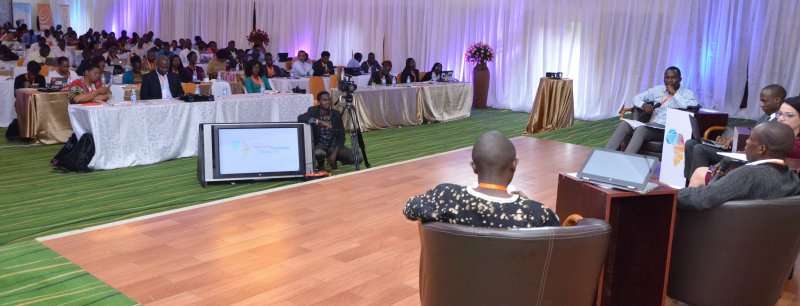Press Statement |
On September 27–29, 2017, the Forum on Internet Freedom in Africa 2017 (FIFAfrica17) will be held in Johannesburg, South Africa. The landmark event convenes various stakeholders from the internet governance and online rights arenas in Africa and beyond to deliberate on gaps, concerns and opportunities for advancing privacy, access to information, free expression, non-discrimination and the free flow of information online.
This year’s convening that is organised by the Collaboration for International ICT Policy in East and Southern Africa (CIPESA) and the Association for Progressive Communications (APC) brings together up to 250 participants from more than 35 countries. This is the first time that FIFAfrica is hosted outside of Uganda where it has been held since its inception in 2014. The Forum’s expanding footprint mirrors the growing popularity of the event which launched with 80 participants.
More than 40 speakers representing a diversity of organisations have been lined up for FIFAfrica17, including from the Berkman Klein Center for Internet & Society at Harvard University, Nigerian social enterprise Paradigm Initiative, Zambian tech accelerator BongoHive, Jamii Media, a Tanzanian company that runs one of the most popular online discussion boards in in East and Central Africa, media rights organisation International Media Support, the University of the Witswatersrand and University of Oxford. Others include global internet advocacy groups Access Now, Small Media, the Internet Society, the Kenya ICT Action Network (KICTANet) and Global Partners Digital. The search engine Google and social networking site Facebook will also be present as will various development foundations and organisations.
Recognised as one of the top Africa tech-preneurs in Africa, Rebecca Enonchong, founder of the global enterprise application solutions provider AppsTech, will give a keynote address and also share insights as a panellist, on big data in Africa.
Launch of State of Internet Freedom in Africa 2017 Report
Documenting the factors that impact upon internet freedom is a key component of CIPESA’s work. Over 20 reports on select countries have been produced since 2014, giving in-depth insight and accounts of the state of internet freedom. Additionally, three reports which give thematic insights have been produced including in 2014 when the Policies And Practices Defining Internet Freedom in East Africa were investigated. In 2015 the report presented a Survey on Access, Privacy and Security Online. Last year’s report looked at the “Strategies African Governments Use to Stifle Citizens’ Digital Rights.
In 2017, the report looks at the grey area that telecommunication service providers navigate when trying to remain profitable and meet their clients’ demands while adhering to legal obligations to the state – often at the cost of users’ freedom of expression and the right to privacy and to access information.
Recognising Access to Information
The Forum will serve as a platform to mark the second year of the International Day for Universal Access to Information (IDUAI), in partnership with UNESCO Regional Office for Southern Africa. Speakers shall include representatives from the Southern African Development Community, media houses and the UNESCO Regional Director for Southern Africa.
About the Forum on Internet Freedom in Africa 2017 (FIFAfrica17)
Thematic discussions FIFAfrica17 are built around themes drawn from the 13 principles of the African Declaration on Internet Rights and Freedoms (www.africaninternetrights.org).
FIFAfrica17 will also feature digital security clinics hosted by Access Now and DefendDefenders, who will provide on-site advice and support on tools to secure digital devices and communications.
Pre-events at the Forum (to be held on September 26 and 27) include a Digital Tools Localisation Sprint hosted by the Localisation Lab which aims to advance the adoption of Internet freedom tools in Africa through translation of technologies and creation of key resources to support the education, training, and adaptation of digital security and circumvention tools. A workshop on Strategic Digital Rights Litigation hosted by the Berkman Klein Center for Internet & Society at Harvard University aims to build capacity on the use of litigation as an effective tool in removing restrictions on the free flow of information online in countries with repressive internet regimes. The workshop will encourage internet activists to collaborate across disciplinary silos to more effectively push back against legal frameworks that are not conducive to a free and open internet. The APC, CIPESA and Small Media will also host a workshop on Human rights review mechanisms, which will take participants through African and UN Periodic Reviews processes.
The Forum will be held at Sunnyside Park Hotel, Princess of Wales Terrace & Carse O’Gowrie Rd, Parktown, Johannesburg, South Africa.
Additional information on the evolution of the Forum can be found at www.internetfreedom.africa
For more information contact [email protected] or Juliet Nanfuka: +256 77 394 9345

